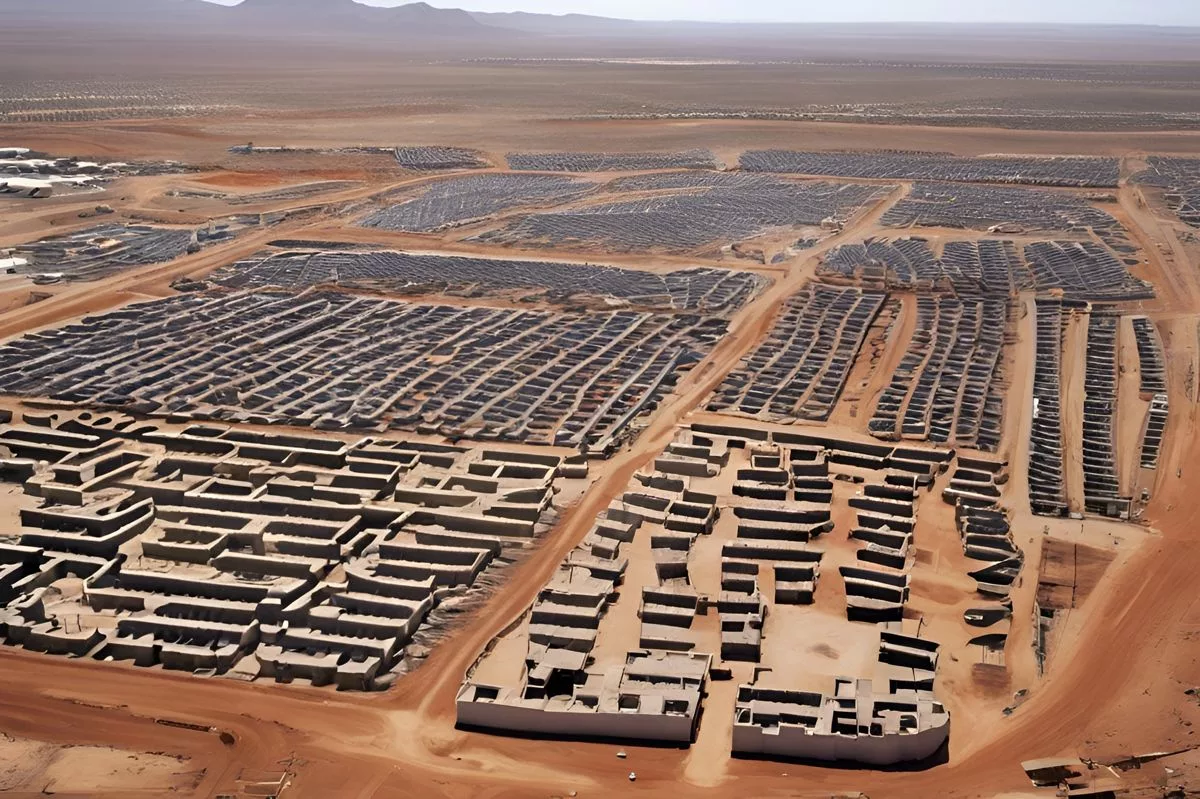Northern Cape in South Africa is undertaking a historic housing project worth around R1 billion, aiming to build over 4,000 homes in 12 to 18 months across different regions. The project prioritizes vulnerable groups like the elderly, people with disabilities, and child-led households, and also targets individuals who earn an income but don’t qualify for subsidized housing or bank loans. It seeks to encourage economic growth and empowerment of women and youth-owned businesses while correcting historical injustices of land and home ownership. The project has secured funding from various sources and promises rigorous monitoring to ensure high-quality standards.
What is Northern Cape’s billion-rand housing project?
Northern Cape is undertaking the most extensive housing project in its history, planning to build more than 4,000 houses over 12 to 18 months in diverse municipalities across the province. The project aims to alleviate the housing shortage, prioritising the vulnerable and encouraging economic growth. It also intends to address historical injustices and has secured funding through various sources.
Transformation and Progress
In a striking breakthrough, Northern Cape, South Africa, has undertaken the most extensive housing project in its history, under the stewardship of President Cyril Ramaphosa. This bold initiative, with an estimated worth of around R1 billion, plans to build more than 4,000 houses over 12 to 18 months in diverse municipalities across the province.
Grasping the mantle as a pillar of hope, this large-scale housing project pledges to alleviate the housing shortage within Northern Cape. It goes beyond just providing ample housing in urban and rural settings. It also targets the ‘missing middle’ — individuals who earn an income but are ineligible for either subsidised housing or commercial bank loans.
Prioritising the Vulnerable
This project is unique in its dedication to prioritising society’s most vulnerable individuals. It centres around the elderly, child-led households, military veterans, and people with disabilities, symbolising a substantial step in the direction of social justice and equality.
Furthermore, it promises to allocate funds to eliminate inadequate housing structures like mud homes and informal settlements, ushering in a new age of dignified living for inhabitants. This audacious move is anticipated to instigate a significant transformation in the lives of Northern Cape residents, many of whom have spent decades living under challenging circumstances.
Encouraging Economic Growth
But this project isn’t just about providing homes. It is also about stimulating economic opportunities. It aims to encourage local business expansion and employment throughout its duration. From the construction phase to the sourcing of building materials and the provision of professional services, the project is expected to spark a wave of economic activities, thereby contributing to the region’s economic upliftment.
In addition, the project makes a deliberate attempt to prioritise businesses owned by women and youth, acting as a launchpad for the empowerment of these groups. The project is committed to guaranteeing that Northern Cape residents and businesses profit from these opportunities, thereby promoting local growth and development.
Monitoring and Assurance
Rigorous measures are in place to ensure these housing projects are delivered within projected timelines and adhere to budgetary constraints, preventing wastage or corruption. This indicates a monumental step forward for the region, with a promise to deliver high-quality construction standards.
As South Africa celebrates three decades of democracy, this housing project exemplifies the country’s progress in enhancing living conditions for its citizens. Census results display significant advancements compared to the past, with nearly nine out of every ten households now residing in formal dwellings.
Correcting Historical Injustices
This project also intends to amend historical injustices of land and home ownership. The apartheid era resulted in black people being denied the right to own land or homes in most urban areas. Many were forced to rent accommodation from the state in areas designated for their specific race. This project represents a considerable stride towards addressing these historical injustices.
Over 4.7 million housing opportunities have been delivered since the start of democracy. This includes detached houses, multi-storey and multi-unit buildings, and serviced stands. Approximately 376,000 qualifying recipients of these homes have been given subsidies and transferred title deeds, signifying a remarkable achievement.
Funding and Support
The Northern Cape has secured funding for these structures and housing units through the Human Settlements Development Grant, a loan facility of National Treasury, and the Development Bank of Southern Africa. This strategy, facilitated by Premier Zamani Saul, Minister of Human Settlements Mmamoloko Kubayi, the Northern Cape Provincial Government, and National Treasury, is projected to significantly reduce the construction timeline.
President Ramaphosa correctly asserted during the launch that the project represents a substantial leap towards securing Northern Cape’s people’s future. This initiative will enable thousands of families to own their homes, an asset that can be used to enhance their lives and transferred to future generations.
A Brighter Future
In this landmark year, marking 30 years of freedom, South Africa persists in its mission to build a nation offering houses, security, and comfort to all its citizens. This project shines as a testament to South Africa’s progress in its mission to provide a better life for all its inhabitants.
As we celebrate this tremendous step, let us continue striving to build a nation where every citizen has access to a home, dignified living conditions, and a prosperous future.
1. What is the goal of Northern Cape’s housing project?
The goal of Northern Cape’s housing project is to build over 4,000 homes in 12 to 18 months across different regions of the province, prioritizing vulnerable groups like the elderly, people with disabilities, and child-led households, and also targeting individuals who earn an income but don’t qualify for subsidized housing or bank loans. It also seeks to encourage economic growth and empowerment of women and youth-owned businesses while correcting historical injustices of land and home ownership.
2. Who is prioritized in the housing project?
The housing project prioritizes vulnerable groups like the elderly, people with disabilities, and child-led households, as well as military veterans. It also targets individuals who earn an income but don’t qualify for subsidized housing or bank loans.
3. How does the housing project encourage economic growth?
The housing project aims to encourage local business expansion and employment throughout its duration, from the construction phase to the sourcing of building materials and the provision of professional services. It also prioritizes businesses owned by women and youth, acting as a launchpad for the empowerment of these groups.
4. What is being done to ensure high-quality construction standards?
Rigorous measures are in place to ensure the housing projects are delivered within projected timelines and adhere to budgetary constraints, preventing wastage or corruption. This indicates a monumental step forward for the region, with a promise to deliver high-quality construction standards.
5. How is the housing project addressing historical injustices?
The housing project intends to amend historical injustices of land and home ownership. It represents a considerable stride towards addressing these historical injustices, particularly for black people who were denied the right to own land or homes in most urban areas during the apartheid era.
6. Where did the funding for the housing project come from?
The Northern Cape has secured funding for these structures and housing units through the Human Settlements Development Grant, a loan facility of National Treasury, and the Development Bank of Southern Africa. This strategy is projected to significantly reduce the construction timeline and has been facilitated by various government officials and bodies.












